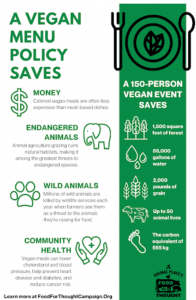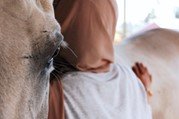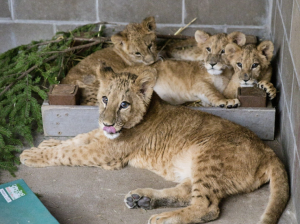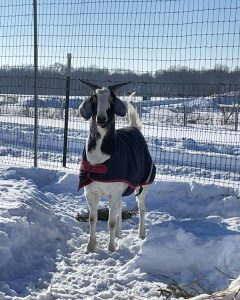The Big Cat Public Safety Act is Officially Law!
 President Biden signed the Big Cat Public Safety Act into law last month and GFAS is still celebrating! The legislation prohibits keeping tigers, lions and other big cat species as pets, and bans public contact with these species, including paid experiences like cub petting.
President Biden signed the Big Cat Public Safety Act into law last month and GFAS is still celebrating! The legislation prohibits keeping tigers, lions and other big cat species as pets, and bans public contact with these species, including paid experiences like cub petting.
Special thanks to all the GFAS Accredited and Verified sanctuaries that worked for many years to advocate for this vital legislation and inspired their supporters to do the same. To the Big Cat Sanctuary Alliance, International Fund for Welfare, and Kate Dylewsky of the Animal Welfare Institute, we are so proud of your commitment to working this bill each and every year. All of you have made a better future for captive cats. Thank you!
Veganuary: How to adopt a new organizational resolution
 For many of us, January is a time of intentionality and aspiration, personally, professionally, and organizationally. Organizationally, this might be strategic planning – what are our strengths, weaknesses, opportunities, and threats?
For many of us, January is a time of intentionality and aspiration, personally, professionally, and organizationally. Organizationally, this might be strategic planning – what are our strengths, weaknesses, opportunities, and threats?
Here’s a suggestion for an important opportunity: consider veganism – for your nonprofit. For many farmed animal sanctuaries, this will be preaching to the choir, but have you considered that regardless of what species of animals your sanctuary works with, a vegan policy would be well-aligned with your mission? At its core, veganism is a rejection of animal exploitation and commodification. Even if your mission focuses on wildlife or equines, the concept that animal cruelty should be rejected probably fits your ethos.
Beyond being philosophically aligned with the sanctuary mission, the industries that exploit farmed animals often harm other species in the process – an externality of sorts. Wild habitat destruction is largely due to clearing for pasture land to feed farmed animals. Wild horses are displaced and rounded up to allow cattle to graze in their place. Adopting a vegan organizational policy is a nod to fairness and a deep understanding of the intersection of many animal issues – one that may resonate with many stakeholders.
So, where do you get your protein grants? Your organization could get paid to adopt such a policy!
Animal Place’s Food for Thought Program helps nonprofit organizations extend their compassion to all animals by adopting a vegan or vegetarian menu policy. This is a written, board-approved policy. It states your organization will only serve vegan or vegetarian foods at your events. Adopting a vegan or vegetarian menu policy aligns your menu with your mission of saving animal lives.
Not only will they provide a draft policy for you, your organization can receive a grant for adopting the policy.
GFAS’ own organizational policy is vegan for all our events, in recognition of how we believe animals should be treated and in deference to the survivors of the food industry who reside in sanctuary.
So – this Veganuary – is your sanctuary ready to try vegan, for the animals?
To learn more, visit https://www.foodforthoughtcampaign.org/
If you’d like to help others try veganism, visit https://veganuary.com/en-us/
Coming Soon – Refreshed GFAS Website
We are so excited to share our updated website which should be going live in the next couple weeks! We have worked hard with Vegan Web Design to update the site for easier viewing and organization. The donation jar and information pages for GFAS certified groups has been refreshed and provides great information on each GFAS certified sanctuary/rescue/rehabilitation center.
We have also added a “portal” on our website specifically for GFAS certified organizations. This is a depository for resources shared by GFAS, as well as our certified organizations. Members will also be able to share contact information for networking purposes. We will also be updating this page with any grants we become aware of available for animal welfare organizations. If you are GFAS certified organization, please watch your inbox in the next several weeks for the details to get you started using the “portal”.
New, Revised Bear Standards
GFAS has developed and maintained a set of animal-specific and operations standards that we use to promote excellence in animal care and evaluate organizations’ operations, providing the basis for GFAS Accreditation and Verification. The GFAS Standards are considered living documents, as practices continue to progress and change through advancements in knowledge.
GFAS has revised our Bear Standards to improve consistency and clarity, regarding what is required for GFAS Accreditation and Verification and what is recommended/preferred practice. Additionally, as GFAS expands our global reach, we recognize that there are different ways to meet our Standards that may be impacted by national laws and other circumstances; these revisions aim to bring more ease of application, emphasizing the purpose of each Standard and the outcome it seeks to achieve. A detailed overview of revisions, timeline for implementation, and FAQ’s can be found here.
GFAS Policy on Organizational Updates
A friendly reminder for our currently Accredited and Verified groups, to keep us, at GFAS, up to date with any major changes which occur at your sanctuary organization. Although GFAS status is for three years, we are delighted to hear from our certified groups at any time!
Click here to find the GFAS policy on organizational updates. Thanks so much for your review and assistance.
Trillium Creek Welcomes Refugees For Healing and Hope
 This year, GFAS Accredited Trillium Creek Training & Rehabilitation Coalition (TCTC) hosted a 3-day event for over 100 war-torn refugee youths. This 3-day camp was organized in just a short amount of time, and gave these kids the opportunity to learn how to touch, lead and even ride horses something none of them had ever done before.
This year, GFAS Accredited Trillium Creek Training & Rehabilitation Coalition (TCTC) hosted a 3-day event for over 100 war-torn refugee youths. This 3-day camp was organized in just a short amount of time, and gave these kids the opportunity to learn how to touch, lead and even ride horses something none of them had ever done before.
“These kids are shut down, violated, fearful, traumatized, maimed, and have only had war, refugeee camps, school, isolation and social distancing in their lives so far.”, stated Nura Elmagbari, Portland Refugee Support Group. She went on to say, “We think the horses will help them realize there’s more to this world than fear…”.
Bonnie Ruhl, TCTC Executive Director was inspired by the 3-day event, and hopes the refugees leave with a sense of healing. Bonnie was also full of gratitude for the many people including members of the Oregon Equestrian Trails, TCTC board members, volunteers, neighbors, even Daisy the therapy dog and Georgie the barn cat who came together to make this an amazing and special event.
What an inspiring way to bring a community together to support those in need!
You too can help refugees attending future camps at: http://www.tctchorsecare.org/Trillium_Creek_Training_Center/DONATIONS.html.
The Wildcat Sanctuary Welcomes Four Lion Cubs from Ukraine!
 GFAS Accredited, The Wildcat Sanctuary (TWS) has become the permanent home for lions, Taras, Stefania, Lesya and Prada after they were rescued from war battered, Ukraine and taken to the Poznan Zoo in Poland for temporary care. The cubs had been surrendered to animal rescue organizations, Vet Crew in Odesa and Wild Animal Rescue in Kyiv, after local officials started to enforce laws on the exotic pet trade in Ukraine. With rescue centers at capacity across Europe, these lions were fortunate to receive a path to sanctuary in the United States as the international permitting process is not for the faint of heart. The successful project was a partnership between The Wildcat Sanctuary, and International Fund for Animal Welfare.
GFAS Accredited, The Wildcat Sanctuary (TWS) has become the permanent home for lions, Taras, Stefania, Lesya and Prada after they were rescued from war battered, Ukraine and taken to the Poznan Zoo in Poland for temporary care. The cubs had been surrendered to animal rescue organizations, Vet Crew in Odesa and Wild Animal Rescue in Kyiv, after local officials started to enforce laws on the exotic pet trade in Ukraine. With rescue centers at capacity across Europe, these lions were fortunate to receive a path to sanctuary in the United States as the international permitting process is not for the faint of heart. The successful project was a partnership between The Wildcat Sanctuary, and International Fund for Animal Welfare.
Tammy Thies, founder of The Wildcat Sanctuary, flew to Poland over Thanksgiving last year to help facilitate the myriad of details involved in the cubs’ final journey to Sandstone, Minnesota, the location of their sanctuary home. These cubs will live together as a pride in their own spacious, wooded and enriched enclosure and receive excellent veterinary care in the sanctuary’s state of the art veterinary hospital.
Four little lions survived war, traveled thousands of miles and landed safely into the care of people devoted to their best interests. Welcome to true sanctuary Taras, Stefania, Lesya and Prada! It’s all love, peace and play from here.
To learn more about these special lions, and support their progress at Wildcat Sanctuary please visit: The Wildcat Sanctuary
How much is a life worth: Blossom’s story
 There are many amazing stories of sanctuaries saving animal lives – but sometimes, more often than you might think – animals save themselves. They are the hero of their own story.
There are many amazing stories of sanctuaries saving animal lives – but sometimes, more often than you might think – animals save themselves. They are the hero of their own story.
In 2021, Blossom saved her own life, arriving at Verified Farmaste Sanctuary in Minnesota. Farmaste says:
We aren’t sure of her background, she is believed to have escaped from a nearby live market. She was found wandering South Saint Paul with a $350 price tag in her ear.
Blossom was extremely anxious when she arrived at Farmaste. Although progress has been slow it has been steady. She is becoming more comfortable with her caregivers, even accepting occasional scratches! She loves her goat family and is strongly bonded with her herd. She was recently introduced to Lillibet, her new stall-mate and hopefully future bestie, and it is going very well.
Blossom knew she was worth more than $350, that her life was priceless. Her story is important for many reasons, but the points that struck us are these:
- Blossom’s story is a common way in which animals come to need sanctuary – via live markets where a sentient being is reduced to a price tag and treated as a mere product. The entrenched systems which allow this to happen must be shifted.
- Blossom reminds us that animals have agency if given the chance. They know something bad is happening. They value their lives. This is a far cry from what the industry would have us believe about animal sentience, intelligence, and individualism.
Blossom, and all sanctuary residents, have so much to teach us if we listen.
You can learn more about Blossom and the work of Farmaste at farmaste.org
New Certifications and Renewals
Over the past month, GFAS has transitioned two groups from Verified to Accredited status and renewed five GFAS organizations!
Congratulations to all these groups!
Transitioned from Verified to Accredited
Central Virginia Horse Rescue, Virginia
Trillium Creek Training & Rehabilitation Coalition
Renewals
Glen Ellen Vocational Academy, California
Gorilla Rehabilitation and Conservation Education (GRACE) Center, Democratic Republic of Congo
Harmony Acres Equestrian Center, Colorado
Redwings Horse Sanctuary, California
WildCat Ridge, Oregon
